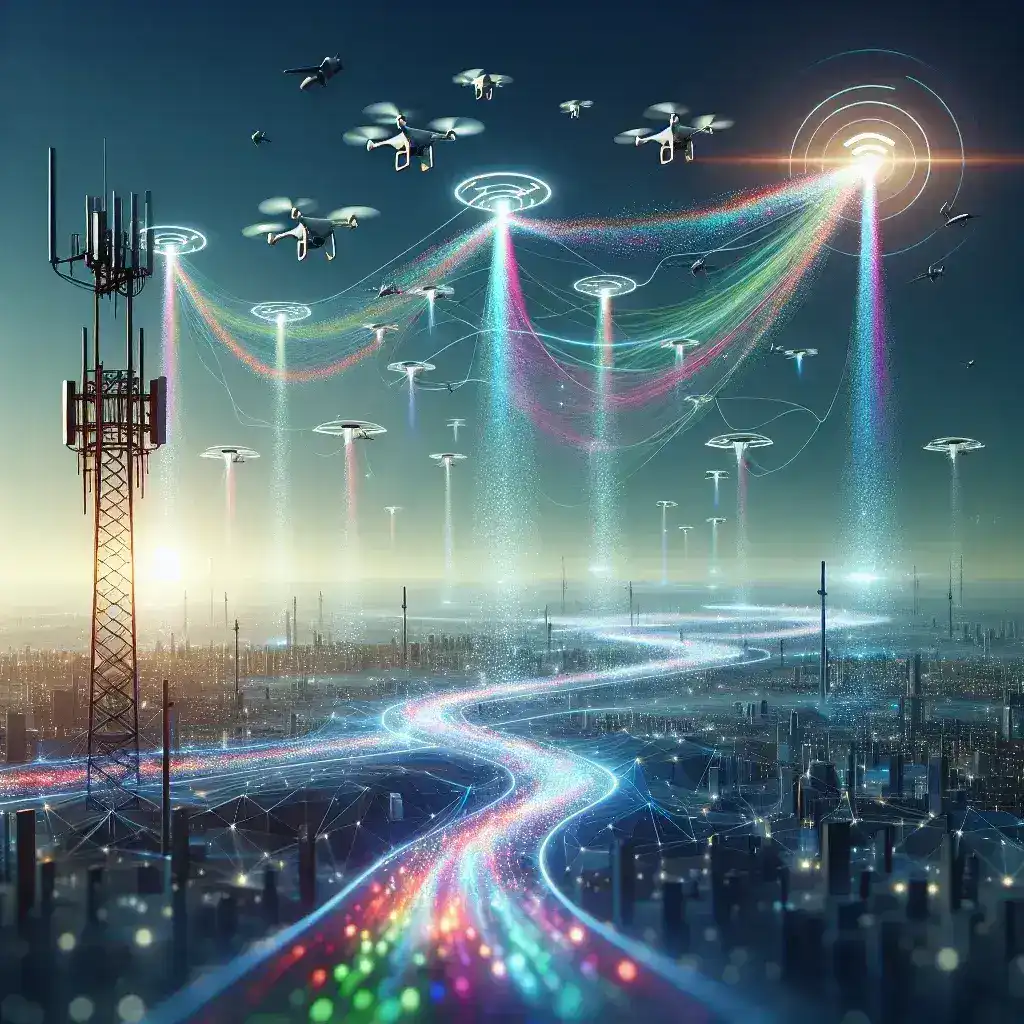The Role of 5G in Autonomous Drones
As we stand on the precipice of the 5G revolution, the implications for various technologies are staggering. One such technology set for a transformative leap is autonomous drones. With the exponential growth in connectivity and speed brought about by 5G, these drones are poised to become smarter, faster, and more reliable, paving the way for widespread adoption across numerous industries.
Understanding Autonomous Drones
Autonomous drones, equipped with sophisticated AI algorithms and sensors, can perform tasks without human intervention. These drones are used in various applications, from delivery services to agricultural monitoring and environmental conservation. But their full potential remains untapped due to current network limitations.
The Unique Advantages of 5G
1. Ultra-Low Latency
One of the most critical advantages of 5G is its ultra-low latency, which can drop to as low as one millisecond. This is a game-changer for autonomous drones that rely on real-time data processing for obstacle detection, navigation, and other crucial operations. Reduced latency means drones can react almost instantaneously to their environment, significantly reducing the risk of collisions and improving overall safety.
2. Enhanced Connectivity
5G offers enhanced connectivity, capable of supporting up to a million devices per square kilometer. For autonomous drones, this means seamless communication with other drones, control centers, and IoT devices. Enhanced connectivity ensures drones can operate efficiently even in densely populated urban areas or remote locations with historically poor network coverage.
3. Higher Bandwidth
The increased bandwidth of 5G allows for the transmission of large volumes of data at unprecedented speeds. This capability is vital for autonomous drones that need to send and receive high-resolution video, detailed sensor data, and intricate flight instructions in real time. Such robust data transfer supports more complex operations and applications.
Industries Set to Benefit from 5G-Enabled Autonomous Drones
1. Logistics and Delivery
One of the most promising applications of 5G-enabled autonomous drones is in logistics and delivery. Companies like Amazon and UPS are already exploring drone delivery systems, and 5G can make these systems more efficient and reliable. Faster data transmission and low latency mean drones can navigate more accurately and avoid obstacles more effectively, ensuring timely and safe deliveries.
2. Agriculture
In agriculture, drones equipped with 5G technology can provide real-time monitoring of crops, livestock, and soil conditions. The high-resolution data collected and transmitted via 5G can help farmers make informed decisions about irrigation, fertilization, and pest control, leading to increased yields and sustainable farming practices.
3. Public Safety and Surveillance
Autonomous drones supported by 5G can play a crucial role in public safety and surveillance. These drones can be deployed for search and rescue missions, traffic monitoring, and disaster response. The real-time data transmission enables quick decision-making, potentially saving lives and reducing response time during emergencies.
4. Environmental Conservation
Environmental conservation efforts can also benefit from 5G-enabled autonomous drones. These drones can monitor wildlife, track deforestation, and assess environmental damage with greater accuracy and in real-time. The detailed data collected can inform conservation strategies and policy decisions, helping to protect our natural world.
Challenges and Considerations
While the integration of 5G technology with autonomous drones offers immense potential, it’s essential to address several challenges. These include:
- Regulatory Framework: Developing a comprehensive regulatory framework to ensure safe and ethical drone operations.
- Security: Ensuring robust cybersecurity measures to protect drone data and prevent unauthorized interference.
- Infrastructure: Building the necessary infrastructure to support widespread 5G connectivity, particularly in rural and remote areas.
The Future of Autonomous Drones
The future of autonomous drones, powered by 5G technology, is incredibly promising. As we overcome the existing challenges and continue to innovate, we can expect these drones to become an integral part of our everyday lives, revolutionizing various sectors and driving significant advancements.
In conclusion, the advent of 5G technology is set to accelerate the adoption of autonomous drones across multiple industries. The unparalleled speed, connectivity, and reliability of 5G will enable these drones to perform more complex and critical tasks, ultimately transforming the way we live and work.

